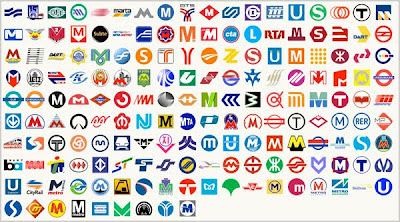In recent board meetings, Metro GM Richard Sarles has boasted about how many new employees Metro has been hiring to help "rebuild the system."
But just what kind of people is Metro hiring, and are they helping or hurting?
The number of new employees and the loss of veteran employees over the past 18 months was a major concern in last week's FTA safety "audit."
In the Automatic Train Control (ATC) Department, which is responsible for crucial safety systems to prevent trains from colliding, two sources say they are very concerned for their safety and the safety of riders because of the low skill--and language--level of new employees.
"Some of these new guys have developed terrible working habits that would take an old timer years to have the nerve to pull off," said one source. "Metro is partly to blame for that. The influx of workers in ATC who walk around without the basic equipment needed to perform their jobs like keys to access rooms, radios and the lack of basic troubleshooting skills, have created a work environment that just isn't safe. So, for all the talk of safety and patting themselves on the back, it's all make believe."
Another source said the new hires have nothing to do. "They can't do anything because they don't know how," they said. "They're more in the way than anything else. It's just a matter of time until there's another incident."
One newcomer to ATC was responsible for the recent derailment at Rosslyn.
On the rail operations side, the unskilled and inexperienced new hires have lead to delays and damaged equipment.
Particularly, the position of line supervisor has led to some embarrassing incidents, says one Metro source.
Line supervisors are in charge of the train operators and station managers. They are supposed work their way up the ranks from operator or station manager and over the course of that experience, they are supposed acquire the skills to troubleshoot train malfunctions at a higher level than an operator, for example. When a train breaks down, a line supervisor should be able to get it moving again so that "normal" service can begin.
Yet recently, Metro hired several supervisors with no experience at all. One was a baggage handler before coming to Metro, says a source.
One of these new hires was recently responsible for moving an out of service train out of the way so "normal" service could resume. They were told to move the train to Pentagon City, passing through Arlington Cemetery. At Arlington Cemetery, the radio system changes frequency, and train operators are suppose to change from "ops 2" to ops 3," said a source. "There's a big sign" reminding them to do that, said the source.
Here's what happened according to the source: This new hire did not change his radio frequency. So instead of going to Pentagon City, he went through Pentagon and then stopped. Because the supervisor didn't change the radio frequency, central control was unable to reach them to tell them to move. Because that area is a dead zone for cell phones, they were unable to reach them via a Metro-issued cell phone. The train kept sitting there, incommunicado. It was so long that Metro began single tracking around it, until one train stopped next to it and another employee got on the idled train and told the supervisor--finally--to move.
Another new hire, when taking a train to the yard failed to conduct a basic brake test, said a source. The result was that he barreled the train down the tracks with brakes engaged on one of the cars and was only made aware by a passing train operator who saw "smoke and flames" coming from the train.
Another one of these hires apparently failed to understand the basics of railroading and refused to move the train because he had no speed command readouts (a common occurrence at Metro) even though central control had told him it was OK to do so.
"They're wreaking havoc out there," said the source.
And what kind of punishment is meted out when something like this happens?
"Metro is afraid to deal with anyone one-on-one," said a source. "They'll send out a memo to 500 people saying anyone caught not answering their radio would be in trouble instead of going to that one person who did not answer their radio."
Another source agreed "wholeheartedly" with this and said it was demoralizing to a lot of Metro employees who are trying to do the right thing.
And how does the person in charge of line supervisors spend his time?
"One of their new things was to check the station managers to see if they're wearing white socks," said the source. "They're not part of the uniform. It's ridiculous. Your performance is related to how much paperwork you can generate."
These line supervisors command at least $80,000 in annual salary, the source said, and there are roughly 70 of them Metro-wide.
How are these people getting in?
All sources agree that Metro is having a hard time attracting skilled workers and are largely having to select from the "bottom of the barrel," according to one source. "The pay and the shift work make Metro unattractive to someone with skills," they added.
Furthermore, all Metro sources interviewed for this post confirm that exams have been dumbed down to the point of being meaningless.
For positions that still have to take exams, a Metro source said very specific study guides are handed out. The study guides break down the number of questions per topics--Breda brakes--for example and will cite the relevant passages in instruction manuals to read for the exam.
"They just memorize, but it's useless for what they're actually expected to do on the job," said a source. "There's no thinking involved. There's no applied knowledge."
Of course, they can always cheat.
And many exams have been done away with completely.
"They did away with testing the new hires, to the point that we are now teaching some of them the basics of electricity and electronics at best, and English at worst," said a source in ATC. "We are becoming a jobs program."
Even the training is being reduced.
One Metro source said that the training period for train operators used to be 18 weeks, it was later trimmed to 16 then trimmed again, and now, the source said, the training is moving to just six weeks.
All sources scoffed at the FTA findings about the training for new employees and the audit as a whole.
"A real, balls to the wall investigation, would see me coming into work and have my supervisor hand us a phone number or email for us to contact the investigating agents with any concerns," said one veteran employee. "That has never happened since I've been at Metro."
Another source said whenever the FTA and NTSB come around, "they're at the mercy of Metro's management, and they're not getting a true feel for how things really are for most of us."
Other items:
Stabbing at Minnesota Ave. (Examiner)
Dupont escalators "functioning as intended," down 20 times in 40 days (Examiner)
The Washington Post discovers Metro is poorly lit (WaPo)
But just what kind of people is Metro hiring, and are they helping or hurting?
The number of new employees and the loss of veteran employees over the past 18 months was a major concern in last week's FTA safety "audit."
In the Automatic Train Control (ATC) Department, which is responsible for crucial safety systems to prevent trains from colliding, two sources say they are very concerned for their safety and the safety of riders because of the low skill--and language--level of new employees.
"Some of these new guys have developed terrible working habits that would take an old timer years to have the nerve to pull off," said one source. "Metro is partly to blame for that. The influx of workers in ATC who walk around without the basic equipment needed to perform their jobs like keys to access rooms, radios and the lack of basic troubleshooting skills, have created a work environment that just isn't safe. So, for all the talk of safety and patting themselves on the back, it's all make believe."
Another source said the new hires have nothing to do. "They can't do anything because they don't know how," they said. "They're more in the way than anything else. It's just a matter of time until there's another incident."
One newcomer to ATC was responsible for the recent derailment at Rosslyn.
On the rail operations side, the unskilled and inexperienced new hires have lead to delays and damaged equipment.
Particularly, the position of line supervisor has led to some embarrassing incidents, says one Metro source.
Line supervisors are in charge of the train operators and station managers. They are supposed work their way up the ranks from operator or station manager and over the course of that experience, they are supposed acquire the skills to troubleshoot train malfunctions at a higher level than an operator, for example. When a train breaks down, a line supervisor should be able to get it moving again so that "normal" service can begin.
Yet recently, Metro hired several supervisors with no experience at all. One was a baggage handler before coming to Metro, says a source.
One of these new hires was recently responsible for moving an out of service train out of the way so "normal" service could resume. They were told to move the train to Pentagon City, passing through Arlington Cemetery. At Arlington Cemetery, the radio system changes frequency, and train operators are suppose to change from "ops 2" to ops 3," said a source. "There's a big sign" reminding them to do that, said the source.
Here's what happened according to the source: This new hire did not change his radio frequency. So instead of going to Pentagon City, he went through Pentagon and then stopped. Because the supervisor didn't change the radio frequency, central control was unable to reach them to tell them to move. Because that area is a dead zone for cell phones, they were unable to reach them via a Metro-issued cell phone. The train kept sitting there, incommunicado. It was so long that Metro began single tracking around it, until one train stopped next to it and another employee got on the idled train and told the supervisor--finally--to move.
Another new hire, when taking a train to the yard failed to conduct a basic brake test, said a source. The result was that he barreled the train down the tracks with brakes engaged on one of the cars and was only made aware by a passing train operator who saw "smoke and flames" coming from the train.
Another one of these hires apparently failed to understand the basics of railroading and refused to move the train because he had no speed command readouts (a common occurrence at Metro) even though central control had told him it was OK to do so.
"They're wreaking havoc out there," said the source.
And what kind of punishment is meted out when something like this happens?
"Metro is afraid to deal with anyone one-on-one," said a source. "They'll send out a memo to 500 people saying anyone caught not answering their radio would be in trouble instead of going to that one person who did not answer their radio."
Another source agreed "wholeheartedly" with this and said it was demoralizing to a lot of Metro employees who are trying to do the right thing.
And how does the person in charge of line supervisors spend his time?
"One of their new things was to check the station managers to see if they're wearing white socks," said the source. "They're not part of the uniform. It's ridiculous. Your performance is related to how much paperwork you can generate."
These line supervisors command at least $80,000 in annual salary, the source said, and there are roughly 70 of them Metro-wide.
How are these people getting in?
All sources agree that Metro is having a hard time attracting skilled workers and are largely having to select from the "bottom of the barrel," according to one source. "The pay and the shift work make Metro unattractive to someone with skills," they added.
Furthermore, all Metro sources interviewed for this post confirm that exams have been dumbed down to the point of being meaningless.
For positions that still have to take exams, a Metro source said very specific study guides are handed out. The study guides break down the number of questions per topics--Breda brakes--for example and will cite the relevant passages in instruction manuals to read for the exam.
"They just memorize, but it's useless for what they're actually expected to do on the job," said a source. "There's no thinking involved. There's no applied knowledge."
Of course, they can always cheat.
And many exams have been done away with completely.
"They did away with testing the new hires, to the point that we are now teaching some of them the basics of electricity and electronics at best, and English at worst," said a source in ATC. "We are becoming a jobs program."
Even the training is being reduced.
One Metro source said that the training period for train operators used to be 18 weeks, it was later trimmed to 16 then trimmed again, and now, the source said, the training is moving to just six weeks.
All sources scoffed at the FTA findings about the training for new employees and the audit as a whole.
"A real, balls to the wall investigation, would see me coming into work and have my supervisor hand us a phone number or email for us to contact the investigating agents with any concerns," said one veteran employee. "That has never happened since I've been at Metro."
Another source said whenever the FTA and NTSB come around, "they're at the mercy of Metro's management, and they're not getting a true feel for how things really are for most of us."
Other items:
Stabbing at Minnesota Ave. (Examiner)
Dupont escalators "functioning as intended," down 20 times in 40 days (Examiner)
The Washington Post discovers Metro is poorly lit (WaPo)










 Oct. 11, 2012
Oct. 11, 2012 February 21, 2012
February 21, 2012 March 4, 2010
March 4, 2010




